Doppelgängers: You may have a twin who is not your brother
Discover what doppelgängers are: science reveals surprising genetic similarities between unrelated people, showing unexpected connections....
Table of Contents
- The Curious World of Doppelgängers
- Genetics: the surprising hidden link
- And what about personality?
- Beyond Similar Faces
Follow Patricia Alegsa on Pinterest!
The Curious World of Doppelgängers
Imagina walking down the street and running into someone who looks like your reflection, but isn’t your long-lost brother or distant cousin. Coincidence? Not so fast! It turns out that the phenomenon of doppelgängers, those people who resemble us without sharing a family tree, has deeper roots than we thought.
In October 2024, the “Timothée Chalamet Doppelgänger Contest” in New York attracted a crowd, and not just fans of the actor. Scientists and genetics experts also turned their eyes to this event, intrigued by the similarities among these apparent "twins."
Are those just mischievous genes playing hide and seek? A team led by geneticist Manel Esteller from the Josep Carreras Leukaemia Research Institute in Barcelona delved into this question.
Genetics: the surprising hidden link
Are those just mischievous genes playing hide and seek? A team led by geneticist Manel Esteller from the Josep Carreras Leukaemia Research Institute in Barcelona delved into this question.
Using photographs of documented doppelgängers by photographer François Brunelle as a starting point, Esteller discovered that these "face twins" share more than just their magnificent cheekbones.
Through a study published in Cell Reports, his team found that certain genetic variants, especially in DNA sequences called "polymorphic sites," show up in the bone structure and skin pigmentation of these doubles. What a surprise!
Now, before you decide to search for your genetic clone, consider this: with over 7 billion people in the world, it’s not so far-fetched that some of us share a significant number of genetic variations.
Now, before you decide to search for your genetic clone, consider this: with over 7 billion people in the world, it’s not so far-fetched that some of us share a significant number of genetic variations.
In short, there is a limit to the combinations of faces we can have. So, if you ever come across your doppelgänger, don’t be alarmed, thank the vast global population!
With such similar faces, one would think that these doppelgängers also share personality traits. But psychologist Nancy Segal from California State University decided to take a closer look.
And what about personality?
With such similar faces, one would think that these doppelgängers also share personality traits. But psychologist Nancy Segal from California State University decided to take a closer look.
Using questionnaires that assessed aspects such as extroversion and agreeableness, she found that, although these doubles may be physically similar, their personalities are as diverse as those of any random pair. Apparently, being a clone in appearance does not imply being one in essence.
The study of doppelgängers offers more than just entertainment. In medicine, it could help diagnose rare genetic diseases. However, it also raises ethical dilemmas.
Beyond Similar Faces
The study of doppelgängers offers more than just entertainment. In medicine, it could help diagnose rare genetic diseases. However, it also raises ethical dilemmas.
Bioethics expert Daphne Martschenko warns about the potential misuse of these technologies, especially in legal and employment contexts. So, before algorithms start deciding our fates, it is essential to reflect on how we use them.
Ultimately, the fascination with doppelgängers reveals not only our genetic connections but also our human desire to find similarities in others. At the end of the day, we all seek a reflection in the world around us.
Ultimately, the fascination with doppelgängers reveals not only our genetic connections but also our human desire to find similarities in others. At the end of the day, we all seek a reflection in the world around us.
So, have you found your double yet?
Subscribe to the free weekly horoscope
Aquarius Aries Cancer Capricorn Gemini Leo Libra Pisces Sagittarius Scorpio Taurus Virgo
-
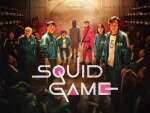 New season of Squid Game! What you need to know
New season of Squid Game! What you need to know
Discover the new season of the series that captivated millions! New adventures, shocking revelations, and the return of key characters await you. -
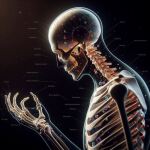 A proper diet to improve your bones, prevent osteoporosis and fractures
A proper diet to improve your bones, prevent osteoporosis and fractures
Discover how a proper diet can slow down bone loss and reduce the risk of osteoporosis and fractures as you age. Take care of your health! -
 Nostradamus' unsettling prophecy: a leader falls and the world on the brink of war before the end of the year
Nostradamus' unsettling prophecy: a leader falls and the world on the brink of war before the end of the year
Nostradamus predicted the collapse of a leader, a global war, and a new currency before the end of the year. Are we on the verge of a historic change? -
 A movie-like scene! A wounded family is rescued by a storm chaser
A movie-like scene! A wounded family is rescued by a storm chaser
In a video taken from his car, a storm chaser saved a family that had been hit by an impressive tornado in Texas, USA. The video looks like something out of a movie! -
 The incredible story of the millionaire eaten by cannibals
The incredible story of the millionaire eaten by cannibals
The Mystery of Michael Rockefeller: The young photographer who left New York to live with cannibals and disappeared in the New Guinea jungle in 1961.
I am Patricia Alegsa
I have been writing horoscope and self-help articles professionally for over 20 years.
Subscribe to the free weekly horoscope
Receive weekly in your email the horoscope and our new articles on love, family, work, dreams and more news. We do NOT send spam.
Astral and numerological analysis
-
 Discover your future, secret personality traits and how to improve in love, business and life in general
Discover your future, secret personality traits and how to improve in love, business and life in general
-
 Online Dream Interpreter: with artificial intelligence
Do you want to know what a dream you had means? Discover the power of understanding your dreams with our advanced online dream interpreter using artificial intelligence that responds to you in seconds.
Online Dream Interpreter: with artificial intelligence
Do you want to know what a dream you had means? Discover the power of understanding your dreams with our advanced online dream interpreter using artificial intelligence that responds to you in seconds.
-
 30 Years After the Fall of 'El Chacal': The Incredible Operation that Captured the Terrorist
30 Years After the Fall of 'El Chacal': The Incredible Operation that Captured the Terrorist
30 years after the capture of 'El Chacal', Illich Ramírez Sánchez, the most wanted terrorist, was arrested in Sudan and sentenced to life in prison in France. Discover how the operation unfolded. -
 Discover how your pets improve your cardiovascular health and well-being
Discover how your pets improve your cardiovascular health and well-being
The company of a pet can reduce the risk of cardiovascular diseases and improve overall health. Discover its benefits! -
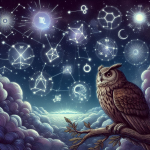 Weekly Horoscope: Discover the Energies from October 7 to 13, 2024
Weekly Horoscope: Discover the Energies from October 7 to 13, 2024
Discover how an astrological event influences your week. Take advantage of the energy from the heavens and make the most of your horoscope. Don't miss it! -
 COVID vaccines protect the heart, according to recent studies
COVID vaccines protect the heart, according to recent studies
A study from three British universities reveals the effects of the Pfizer/BioNTech and AstraZeneca vaccines in adults. Discover the results! -
 Extreme Allergy: A woman is allergic to everything, including her own husband
Extreme Allergy: A woman is allergic to everything, including her own husband
Discover the inspiring story of Johanna Watkins, who faces extreme allergies and a limited diet, while her husband Scott lovingly cares for her. -
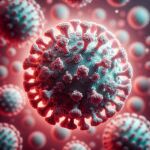 COVID-19: Increase in cases and persistent symptoms that worry the WHO
COVID-19: Increase in cases and persistent symptoms that worry the WHO
COVID-19 remains a threat: the WHO warns about the rise in cases and the persistent symptoms affecting millions. Get informed here! -
 Video: the owner of this car has a real problem with bees
Video: the owner of this car has a real problem with bees
The owner of the car that we can see in this video has encountered a real problem: dangerous bees made their nest there. -
 The biggest scandals of the year of international celebrities
The biggest scandals of the year of international celebrities
The year of celebrities! Cancer, scandals, and comebacks. Paris Match narrates diagnoses, allegations, and returns that shook and showcased their resilience. -
 The Best Ways to Eat Eggs to Boost Their Proteins
The Best Ways to Eat Eggs to Boost Their Proteins
Discover the best way to enjoy eggs and maximize the absorption of their proteins. This nutritious and versatile food is perfect in any recipe. -
 What does it mean to dream of telephones?
What does it mean to dream of telephones?
Discover the meaning behind your phone dreams and how they can reveal important aspects of your life. Read our article and take control of your dreams today! -
 What does it mean to dream of spotlights?
What does it mean to dream of spotlights?
Have you ever wondered what it means to dream of spotlights? Discover in this article the possible meanings of this dream and its interpretation in different contexts. -
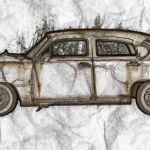 What does it mean to dream of rusty things?
What does it mean to dream of rusty things?
Discover the fascinating world of dreams and their meaning. Find out what it means to dream of rusty things and how it can affect your daily life. read now! -
 What does dreaming about goats mean?
What does dreaming about goats mean?
Discover the meaning of your dreams and learn what it represents to dream about goats. Explore the possible messages and hidden meanings behind each dream!